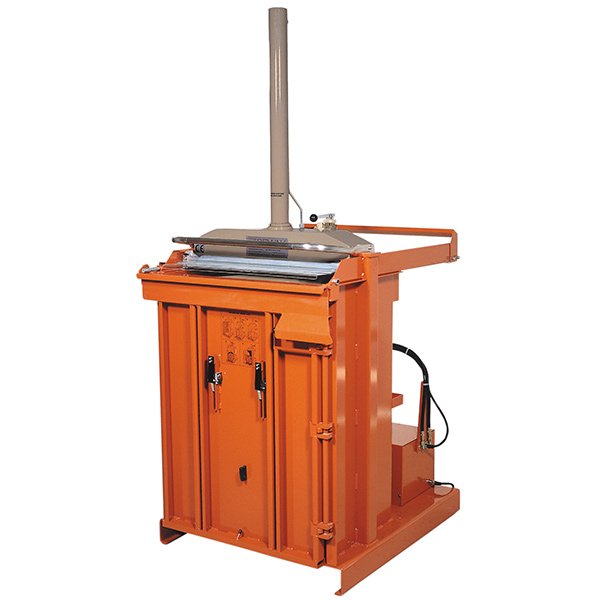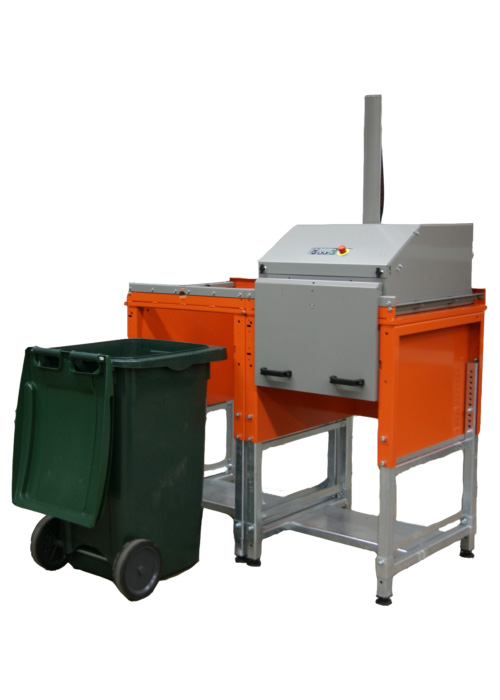Compactors
Compactors are designed to minimize waste volume, thus optimize storage capacities and reduce hauling costs. They create all these benefits by compressing large volumes of trash into a contained area. Further effects of handling waste through a compactor are the reduction of odor, vermin infestation, pilferage and fire hazards.
Use Cases:
Industrial setups with consistent waste output
Advantages
Reduces hauling costs through the need for fewer pickups
Reduces needed manpower for waste management
Keep in mind
Effectiveness is reached via a waste management concept
Personnel needs to get acquainted with functionality
Types of Compactors:
In-bag compactor
Compresses waste directly into durable plastic bags resulting in a practical solution for compacting waste in a clean and closed system.
Use Cases: Retail outlets, small / medium industries, hospitality
Advantages: Efficient and hygienic compaction of all types of residual materials
Keep in mind: Not suitable for all types of waste
In-bin compactor
Handles dry waste, streamlines the waste management process by easy compacting.
Use Cases: Perfect for the hotel and restaurant sector, retail and supermarkets
Advantages: Impressive volume reduction with a small machine
Keep in mind: Not suitable for all types of waste



